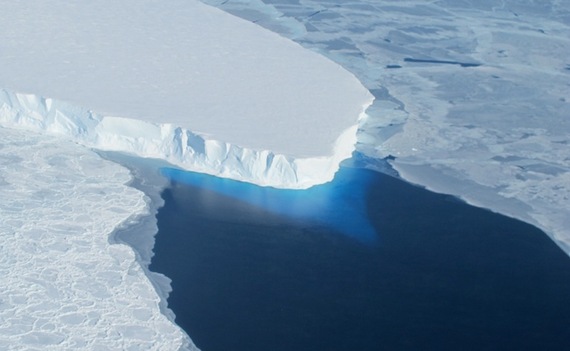Seven days; lots of science in the news. Here's our roundup of the week's most notable and quotable items:
The West Antarctica ice sheet has already started to collapse, which makes scientists think that a global sea level rise of 10 feet or more is inevitable in coming centuries. Thanks to warmer ocean temperatures, the point at which hurricanes tend to reach their peak strength has shifted away from the equator and towards the poles by more than 30 miles per decade in both hemispheres.
A star in the constellation Hercules seems to have arisen from the same base material as our sun, even though the stellar siblings are now separated by 110 light years. The only thing that the suckers on octopus tentacles won't stick to is octopus skin. One of the prime suspects in a radiation leak at an underground U.S. nuclear waste storage site in New Mexico is kitty litter used to absorb liquid parts of contaminated material.
The U.S. Food and Drug Administration approved the first mind-controlled prosthetic. The DEKA Arm hooks up to the remaining muscle of a patient's upper arm and uses a computer to translate electric signals from muscle movements in the remaining arm into motions delicate enough to pick up an egg without crushing it.
Researchers found the oldest sperm ever discovered--belonging to a small crustacean called a seed shrimp up to 23 million years old--in a pile of bat poop, but lost the robotic submersible Nereus when it imploded thousands of miles below the surface of the ocean in the Kermadec Trench near New Zealand. Elephant seals have as much carbon monoxide in their blood as a two-pack-a-day cigarette smoker; this possibly helps them survive deep dives in the ocean while hunting.
Earthquakes in parts of California might be triggered by groundwater pumped out from under the earth to irrigate farms in the Central Valley. The last wild wolf in the Golden State seems to have found romance--but only after moving to Oregon.
________
"This Week In Science" is presented by the World Science Festival, which runs from May 28 to June 1 in venues across New York City. For tickets and more information, check out the festival website.
